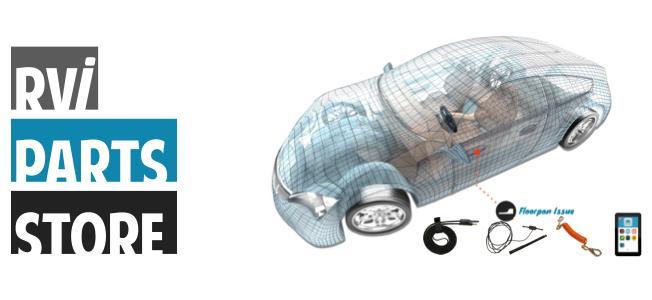Flat towing safely has always been a challenge, going back to when Dan Decker Sr. first invented the original Brake Buddy braking system in the ‘90s. Flat towing laws have helped to reduce the number of issues, but there seems to be a neverending stream of information out there. It’s hard to know what to trust. With that in mind, we put together this handy ‘quick reference’ that you can use as a sort of checklist to make sure that you and your family are as safe as possible when hitting the road in 2024 and beyond.
KNOW YOUR LIMITS
This is first because it’s so critical - and often overlooked. Lost in all the tech specs of different equipment and the price of various RVs and components is the simple reality that you should only drive a vehicle you’re comfortable driving.

Maybe you’re not comfortable driving a big bus-style Class A motorhome, but you’re perfectly at ease towing something that’s more trailer-like. Great! A camper-style trailer or 5th wheel might be the way to go. Or, vice versa: Perhaps you’re most comfortable driving large vehicles but don’t have tons of trailer-pulling experience. In those cases, you’d probably opt for a Class A or Class C over a trailer-style RV.
There’s no one-size-fits-all here. Drive what you’re comfortable driving - no bigger.
ALWAYS DOUBLE-CHECK EQUIPMENT - EVEN IF YOU’RE IN A HURRY
Look, it’s human nature to want to get going as fast as possible - especially if you’re running behind on a reservation or something of that nature. But no reservation is worth your safety. Always double-check things like your towbar, braking system, and tire pressure monitors - even if the equipment you’re using is super reliable. It only takes one time (whether by mechanical failure or human error) for things to go south really quickly.
Don’t skimp out on this!
DON’T BARGAIN SHOP FOR SAFETY EQUIPMENT
This kind of goes hand-in-hand with the previous point. There are certain areas where saving a few bucks is fantastic - but safety equipment isn’t the place to do it. We’re in the braking system industry, so we get it: Certain elements of RVing get really pricey. When it comes to safety equipment though, you want to look for the highest-quality product - which oftentimes won’t be the cheapest. If you can get things on sale, then that’s awesome, but don’t make looking for the lowest price the overriding concern.
With towbars, for example, you want to prioritize the number of extensions the equipment is rated for, its catastrophic failure rate, and the reputation of the manufacturer before placing a heavy emphasis on price. With braking systems, you’ll want to consider response time in a panic stop. (Speaking of, we have a handy little comparison chart HERE.) And for tire pressure monitoring, you’ll want to consider things like durability, responsiveness to pressure/temp changes, and speed of communication with the driver.
Price, especially in today’s day and age, is important. But with safety equipment, it should be a consideration that gets bumped a little lower down on the list.
CHECK TOWING LAWS - AND FOLLOW THEM
Again, this is something that seems obvious on its face, but can very quickly get lost in the shuffle. Set tickets and fines aside for a second - flat towing laws (much like other traffic laws) have empirical data associated with them that have been shown to either reduce accidents or reduce fatalities/damage resulting from accidents. Even traffic laws you may feel are silly or unnecessary are there for a reason - and it’s in your best interest to follow them.Some common towing laws include:
- Using a supplemental braking system when towing a vehicle over a certain weight threshold
- No double towing
- Lane usage restrictions
While the specifics of these laws do vary, there are some common threads. Most states make it fairly easy to find their General Statutes/Codes online - so, before you hit the open road, make sure to study up a bit on anything that may be relevant to your situation.
HAVE AN EXPERIENCED GUIDE
Everyone’s RVing journey is unique, but it’s always helpful to have someone with expertise that you can go to who can provide insight or answers to questions you might have. Sometimes, that’s going to be a fellow RVer who’s been at it awhile. Other times, this guide might be a mechanic or an RV tech that you really trust. Whoever you choose as your guide, you want to make sure they’re knowledgable and have your best interests at heart.
Here at RVi, we’d love to be that guide for you! Our team’s focus is your safety, first and foremost. We’re always going to seek to give you the best advice possible so that you can stay focused on what matters: Making memories with your loved ones, family, and friends.
CONCLUSION
Don’t settle for second-best when it comes to safety. By following this quick guide, you can reduce your risk of major issues and help ensure a safe arrival at your destination. If you have any questions on anything in this post, let us know! We’re here to help.And, in the meantime, happy RVing!







Leave a comment